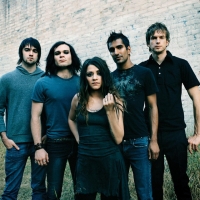Latest Sheet Music
J. S. Bach
Johann Sebastian Bach (21 March 1685, O.S.31 March 1685, N.S. – 28 July 1750, N.S.) was a German composer, organist, harpsichordist, violist, and violinist whose sacred and secular works for choir, orchestra, and solo instruments drew together the strands of the Baroque period and brought it to its ultimate maturity. Although he did not introduce new forms, he enriched the prevailing German style with a robust contrapuntal technique, an unrivalled control of harmonic and motivic organisation, and the adaptation of rhythms, forms and textures from abroad, particularly from Italy and France.
Revered for their intellectual depth, technical command and artistic beauty, Bach's works include the Brandenburg Concertos, the Goldberg Variations, the Partitas, The Well-Tempered Clavier, the Mass in B minor, the St Matthew Passion, the St John Passion, the Magnificat, A Musical Offering, The Art of Fugue, the English and French Suites, the Sonatas and Partitas for solo violin, the Cello Suites, more than 200 surviving cantatas, and a similar number of organ works, including the famous Toccata and Fugue in D minor and Passacaglia and Fugue in C minor, as well as the Great Eighteen Chorale Preludes and Organ Mass.
Bach's abilities as an organist were highly respected throughout Europe during his lifetime, although he was not widely recognised as a great composer until a revival of interest and performances of his music in the first half of the 19th century. He is now generally regarded as one of the main composers of the Baroque style, and as one of the greatest composers of all time.
Revered for their intellectual depth, technical command and artistic beauty, Bach's works include the Brandenburg Concertos, the Goldberg Variations, the Partitas, The Well-Tempered Clavier, the Mass in B minor, the St Matthew Passion, the St John Passion, the Magnificat, A Musical Offering, The Art of Fugue, the English and French Suites, the Sonatas and Partitas for solo violin, the Cello Suites, more than 200 surviving cantatas, and a similar number of organ works, including the famous Toccata and Fugue in D minor and Passacaglia and Fugue in C minor, as well as the Great Eighteen Chorale Preludes and Organ Mass.
Bach's abilities as an organist were highly respected throughout Europe during his lifetime, although he was not widely recognised as a great composer until a revival of interest and performances of his music in the first half of the 19th century. He is now generally regarded as one of the main composers of the Baroque style, and as one of the greatest composers of all time.
Edith Piaf
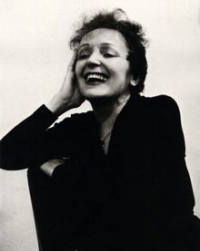
Édith Piaf (19 December 1915—10 October 1963) was a French singer and cultural icon who "is almost universally regarded as France's greatest popular singer." Her singing reflected her life, with her specialty being the ballads. Among her famous songs are "La vie en rose" (1946), "Hymne à l'amour" (1949), "Milord" (1959), "Non, je ne regrette rien" (1960), and Padam Padam.
Edith Piaf's signature song "La vie en rose" was written in 1945 and was voted a Grammy Hall of Fame Award in 1998.
The legendary Paris Olympia concert hall is where Piaf achieved lasting fame, giving several series of concerts at the hall, the most famous venue in Paris, between January 1955 and October 1962. Excerpts from five of these concerts (1955, 1956, 1958, 1961, 1962) were issued on record and CD and have never been out of print. The 1961 concerts were promised by Piaf in an effort to save the venue from bankruptcy and where she debuted her song "Non, je ne regrette rien". In April 1963, Piaf recorded her last song, "L'homme de Berlin".
Edith Piaf's signature song "La vie en rose" was written in 1945 and was voted a Grammy Hall of Fame Award in 1998.
The legendary Paris Olympia concert hall is where Piaf achieved lasting fame, giving several series of concerts at the hall, the most famous venue in Paris, between January 1955 and October 1962. Excerpts from five of these concerts (1955, 1956, 1958, 1961, 1962) were issued on record and CD and have never been out of print. The 1961 concerts were promised by Piaf in an effort to save the venue from bankruptcy and where she debuted her song "Non, je ne regrette rien". In April 1963, Piaf recorded her last song, "L'homme de Berlin".
Astor Piazzola

Astor Pantaleón Piazzolla (Spanish pronunciation: , Italian pronunciation: ; March 11, 1921 – July 4, 1992) was an Argentine tango composer, bandoneon player, and arranger. His oeuvre revolutionized the traditional tango into a new style termed nuevo tango, incorporating elements from jazz and classical music. A virtuoso bandoneonist, he regularly performed his own compositions with a variety of ensembles.
In 1992, American music critic Stephen Holden described Piazzolla as "the world's foremost composer of tango music"
In 1992, American music critic Stephen Holden described Piazzolla as "the world's foremost composer of tango music"
Josef Klička
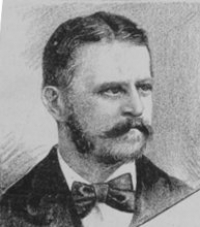
Josef Klička (15 December 1855, Klatovy, Kingdom of Bohemia – 28 March 1937, Klatovy) was a Czech organist, violinist, composer, conductor and pedagogue. He produced several large organ compositions in the style of late romanticism; these have been recorded on CD.A graduate in organ-playing from the Conservatory in Prague, Klička subsequently worked as organist and conductor and eventually became acting professor at his old school. This was from 1892 to 1895, as deputy for Dvořák, then in the USA.
sinsalo
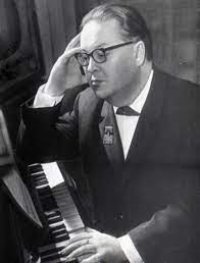
Helmer-Rayner Sinisalo was a composer, the People's Artist of the RSFSR(1959) and the USSR (1975). He has become the author of the first national symphony (1949) and the first national ballet Sampo based on the epos Kalevala (1959), and other musical composition in various musical genres.
Bob Gaudio
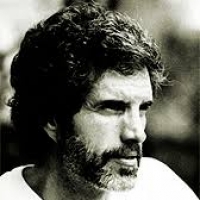
Robert John "Bob" Gaudio (born November 17, 1942) is an American singer, songwriter, musician, and record producer, and the keyboardist and backing vocalist of the Four Seasons. Gaudio wrote or co-wrote and produced the vast majority of the band's music, including hits like "Sherry" and "December, 1963 (Oh, What a Night)". Though he no longer performs with the group, Gaudio and lead singer Frankie Valli remain co-owners of the Four Seasons brand.
Ennio Morricone
Ennio Morricone, OMRI (born November 10, 1928), is an Italian composer and conductor. He has composed and arranged scores for more than 500 film and television productions. Morricone is considered as one of the most influential film composers since the late 1950s. He is well-known for his long-term collaborations with international acclaimed directors such as Sergio Leone, Brian De Palma, Barry Levinson, and Giuseppe Tornatore.
He wrote the characteristic film scores of Leone's Spaghetti Westerns A Fistful of Dollars (1964), For a Few Dollars More (1965), The Good, the Bad and the Ugly (1966), Once Upon a Time in the West (1968), The Great Silence (1968), and My Name Is Nobody (1973). In the 80s, Morricone composed the scores for John Carpenter's horror movie The Thing (1982), Leone's Once Upon a Time in America (1984), Roland Joffé's The Mission (1986), Brian De Palma's The Untouchables (1987) and Giuseppe Tornatore's Cinema Paradiso (1988).
His more recent compositions include the scores for Oliver Stone's U Turn (1997), Tornatore's The Legend of 1900 (1998) and Malèna (2000), Mission to Mars (2000) by Brian De Palma, Fateless (2005), and Baaria - La porta del vento (2009). Ennio Morricone has won two Grammy Awards, two Golden Globes and five Anthony Asquith Awards for Film Music by BAFTA in 1979–1992. He has been nominated for five Academy Awards for Best Music, Original Score in 1979–2001. Morricone received the Honorary Academy Award in 2007 "for his magnificent and multifaceted contributions to the art of film music". He was the second composer to receive this award after its introduction in 1928.
He wrote the characteristic film scores of Leone's Spaghetti Westerns A Fistful of Dollars (1964), For a Few Dollars More (1965), The Good, the Bad and the Ugly (1966), Once Upon a Time in the West (1968), The Great Silence (1968), and My Name Is Nobody (1973). In the 80s, Morricone composed the scores for John Carpenter's horror movie The Thing (1982), Leone's Once Upon a Time in America (1984), Roland Joffé's The Mission (1986), Brian De Palma's The Untouchables (1987) and Giuseppe Tornatore's Cinema Paradiso (1988).
His more recent compositions include the scores for Oliver Stone's U Turn (1997), Tornatore's The Legend of 1900 (1998) and Malèna (2000), Mission to Mars (2000) by Brian De Palma, Fateless (2005), and Baaria - La porta del vento (2009). Ennio Morricone has won two Grammy Awards, two Golden Globes and five Anthony Asquith Awards for Film Music by BAFTA in 1979–1992. He has been nominated for five Academy Awards for Best Music, Original Score in 1979–2001. Morricone received the Honorary Academy Award in 2007 "for his magnificent and multifaceted contributions to the art of film music". He was the second composer to receive this award after its introduction in 1928.
Franz Schubert

Franz Peter Schubert (German pronunciation: ; January 31, 1797 – November 19, 1828) was an Austrian composer. He wrote some 600 Lieder, nine symphonies (including the famous "Unfinished Symphony"), liturgical music, operas, some incidental music, and a large body of chamber and solo piano music. He is particularly noted for his original melodic and harmonic writing.
Schubert was born into a musical family, and received formal musical training through much of his childhood. While Schubert had a close circle of friends and associates who admired his work (amongst them the prominent singer Johann Michael Vogl), wide appreciation of his music during his lifetime was limited at best. He was never able to secure adequate permanent employment, and for most of his career he relied on the support of friends and family. He made some money from published works, and occasionally gave private musical instruction. In the last year of his life he began to receive wider acclaim. He died at the age of 31 of "typhoid fever", a diagnosis which was vague at the time; several scholars suspect the real illness was tertiary syphilis.
Interest in Schubert's work increased dramatically in the decades following his death. Composers like Franz Liszt, Robert Schumann and Felix Mendelssohn discovered, collected, and championed his works in the 19th century, as did musicologist Sir George Grove. Franz Schubert is now widely considered to be one of the greatest composers in the Western tradition.
Schubert was born into a musical family, and received formal musical training through much of his childhood. While Schubert had a close circle of friends and associates who admired his work (amongst them the prominent singer Johann Michael Vogl), wide appreciation of his music during his lifetime was limited at best. He was never able to secure adequate permanent employment, and for most of his career he relied on the support of friends and family. He made some money from published works, and occasionally gave private musical instruction. In the last year of his life he began to receive wider acclaim. He died at the age of 31 of "typhoid fever", a diagnosis which was vague at the time; several scholars suspect the real illness was tertiary syphilis.
Interest in Schubert's work increased dramatically in the decades following his death. Composers like Franz Liszt, Robert Schumann and Felix Mendelssohn discovered, collected, and championed his works in the 19th century, as did musicologist Sir George Grove. Franz Schubert is now widely considered to be one of the greatest composers in the Western tradition.
Traditional

Sarah Brightman

Sarah Brightman (born 14 August 1960) is a British classical crossover soprano, singer, songwriter, actress, dancer and musician.Brightman began her career as a member of the dance troupe Hot Gossip and released several disco singles as a solo performer. In 1981, she made her West End musical theatre debut in Cats and met composer Andrew Lloyd Webber, whom she later married. She went on to star in several West End and Broadway musicals, including The Phantom of the Opera, where she originated the role of Christine Daaé. Her original London cast album of Phantom was released in CD format in 1987 and sold 40 million copies worldwide, making it the biggest-selling cast album ever.
Milan Svoboda

Milan Svoboda is one of the leading personalities on the Czech musical scene. He gained international renown as a jazz pianist and band leader. His composing and conducting skills span a wide range of styles, including modern jazz, musicals, film, theater and contemporary classical music.Milan Svoboda was born in 1951 in Prague. He graduated from the organ class at the Prague Conservatory, studied musicology at Charles' University in Prague and composition at the Prague Academy of Music and at the Berklee College of Music, Boston, USA. In 1974 he founded his first jazz orchestra, the PRAGUE BIG BAND, which made a name for itself in the history of both Czech and European jazz.
Elmer Bernstein
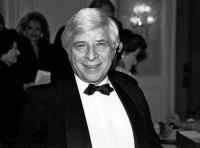
Elmer Bernstein (April 4, 1922 – August 18, 2004) was an American composer and conductor known for his film scores. In a career that spanned more than five decades, he composed "some of the most recognizable and memorable themes in Hollywood history", including over 150 original movie scores, as well as scores for nearly 80 television productions. Examples of his widely popular and critically acclaimed works are scores to The Ten Commandments (1956), The Magnificent Seven (1960), To Kill a Mockingbird (1962), The Great Escape (1963), The Rookies (1972–76), Animal House (1978), Airplane! (1980), Heavy Metal (1981), Ghostbusters (1984), The Black Cauldron (1985), Cape Fear (1991), The Age of Innocence (1993), Wild Wild West (1999) and Far from Heaven (2002). Early in his career, he also scored the infamous camp classic Robot Monster.
Leo Portnoff
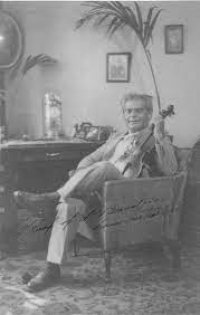
Leo Portnoff was a musician, teacher, and composer. He was a professor at the Stern Conservatory in Berlin from 1906 to 1915. He arrived in the United States in 1922. He initially resided in Brooklyn, and later moved to Florida to teach music at the University of Miami.
Jay Ungar
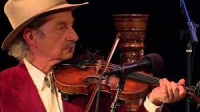
Jay Ungar (born November 14, 1946) is an American folk musician and composer.Ungar was born in the Bronx, New York City. He frequented Greenwich Village music venues during his formative period in the 1960s. In the late 1960s, he became a member of Cat Mother and the All Night News Boys and later, the Putnam String County Band. Although he performs with David Bromberg, he is probably best known for "Ashokan Farewell" (1982), composed as a lament, and used as the theme tune to the Ken Burns documentary The Civil War (1990). Many of his other compositions are familiar as contradance tunes, notably "The Wizard's Walk."In 1991, Ungar married fellow musician Molly Mason. They met during the 1970s. They continue to perform as a duo, with their band, Swingology, and as the Jay Ungar and Molly Mason Family Band with Jay's daughter Ruth Ungar (her mother is Lyn Hardy) and her husband Michael Merenda.
Ludwig van Beethoven

Ludwig van Beethoven (/ˈlʊdvɪɡ væn ˈbeɪt(h)oʊvən/ (About this soundlisten); German: (About this soundlisten); baptised 17 December 1770 – 26 March 1827) was a German composer and pianist. A crucial figure in the transition between the classical and romantic eras in classical music, he remains one of the most recognized and influential musicians of this period, and is considered to be one of the greatest composers of all time.
Beethoven was born in Bonn, the capital of the Electorate of Cologne, and part of the Holy Roman Empire. He displayed his musical talents at an early age and was vigorously taught by his father Johann van Beethoven, and was later taught by composer and conductor Christian Gottlob Neefe. At age 21, he moved to Vienna and studied composition with Joseph Haydn. Beethoven then gained a reputation as a virtuoso pianist, and was soon courted by Prince Lichnowsky for compositions, which resulted in Opus 1 in 1795.
Beethoven was born in Bonn, the capital of the Electorate of Cologne, and part of the Holy Roman Empire. He displayed his musical talents at an early age and was vigorously taught by his father Johann van Beethoven, and was later taught by composer and conductor Christian Gottlob Neefe. At age 21, he moved to Vienna and studied composition with Joseph Haydn. Beethoven then gained a reputation as a virtuoso pianist, and was soon courted by Prince Lichnowsky for compositions, which resulted in Opus 1 in 1795.
Bach

Johann Sebastian Bach (31 March 1685 – 28 July 1750) was a German composer and organist whose sacred and secular works for choir, orchestra, and solo instruments drew together the strands of the Baroque period and brought it to its ultimate maturity. Although he introduced no new forms, he enriched the prevailing German style with a robust contrapuntal technique, an unrivalled control of harmonic and motivic organisation in composition for diverse musical forces, and the adaptation of rhythms and textures from abroad, particularly Italy and France.
Revered for their intellectual depth and technical and artistic beauty, Bach's works include the Brandenburg concertos; the Goldberg Variations; the English Suites, French Suites, Partitas, and Well-Tempered Clavier; the Mass in B Minor; the St. Matthew Passion; the St. John Passion; The Musical Offering; The Art of Fugue; the Sonatas and Partitas for violin solo; the Cello Suites; more than 200 surviving cantatas; and a similar number of organ works, including the celebrated Toccata and Fugue in D Minor.
While Bach's fame as an organist was great during his lifetime, he was not particularly well-known as a composer. His adherence to Baroque forms and contrapuntal style was considered "old-fashioned" by his contemporaries, especially late in his career when the musical fashion tended towards Rococo and later Classical styles. A revival of interest and performances of his music began early in the 19th century, and he is now widely considered to be one of the greatest composers in the Western tradition.
Revered for their intellectual depth and technical and artistic beauty, Bach's works include the Brandenburg concertos; the Goldberg Variations; the English Suites, French Suites, Partitas, and Well-Tempered Clavier; the Mass in B Minor; the St. Matthew Passion; the St. John Passion; The Musical Offering; The Art of Fugue; the Sonatas and Partitas for violin solo; the Cello Suites; more than 200 surviving cantatas; and a similar number of organ works, including the celebrated Toccata and Fugue in D Minor.
While Bach's fame as an organist was great during his lifetime, he was not particularly well-known as a composer. His adherence to Baroque forms and contrapuntal style was considered "old-fashioned" by his contemporaries, especially late in his career when the musical fashion tended towards Rococo and later Classical styles. A revival of interest and performances of his music began early in the 19th century, and he is now widely considered to be one of the greatest composers in the Western tradition.
Radivoj Lazic
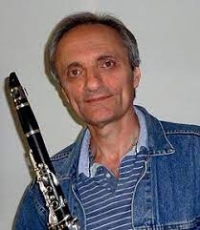
Radivoj was born on 1 August 1953, in Kikinda (Banat, Voivodina). There he finished his elementary schooling followed by two years of high school and elementary studies of the clarinet. From 1971 to 1974 he attended the Music High school "Isidor Bajić" in Novi Sad with professor Mihajlo Kelbli. In 1974 he became a student of the Faculty of music in Belgrade with professor Bruno Brun, and graduated in 1979 with professor Milenko Stefanovic.
The Beatles

The Beatles were a pop and rock group from Liverpool, England formed in 1960. Primarily consisting of John Lennon (rhythm guitar, vocals), Paul McCartney (bass guitar, vocals), George Harrison (lead guitar, vocals) and Ringo Starr (drums, vocals) throughout their career, The Beatles are recognised for leading the mid-1960s musical "British Invasion" into the United States. Although their initial musical style was rooted in 1950s rock and roll and homegrown skiffle, the group explored genres ranging from Tin Pan Alley to psychedelic rock. Their clothes, styles, and statements made them trend-setters, while their growing social awareness saw their influence extend into the social and cultural revolutions of the 1960s. After the band broke up in 1970, all four members embarked upon solo careers.
The Beatles are one of the most commercially successful and critically acclaimed bands in the history of popular music, selling over a billion records internationally. In the United Kingdom, The Beatles released more than 40 different singles, albums, and EPs that reached number one, earning more number one albums (15) than any other group in UK chart history. This commercial success was repeated in many other countries; their record company, EMI, estimated that by 1985 they had sold over one billion records worldwide. According to the Recording Industry Association of America, The Beatles have sold more albums in the United States than any other band. In 2004, Rolling Stone magazine ranked The Beatles number one on its list of 100 Greatest Artists of All Time. According to that same magazine, The Beatles' innovative music and cultural impact helped define the 1960s, and their influence on pop culture is still evident today. In 2008, Billboard magazine released a list of top-selling Hot 100 artists to celebrate the chart's fiftieth anniversary; The Beatles reached #1 again.
The Beatles are one of the most commercially successful and critically acclaimed bands in the history of popular music, selling over a billion records internationally. In the United Kingdom, The Beatles released more than 40 different singles, albums, and EPs that reached number one, earning more number one albums (15) than any other group in UK chart history. This commercial success was repeated in many other countries; their record company, EMI, estimated that by 1985 they had sold over one billion records worldwide. According to the Recording Industry Association of America, The Beatles have sold more albums in the United States than any other band. In 2004, Rolling Stone magazine ranked The Beatles number one on its list of 100 Greatest Artists of All Time. According to that same magazine, The Beatles' innovative music and cultural impact helped define the 1960s, and their influence on pop culture is still evident today. In 2008, Billboard magazine released a list of top-selling Hot 100 artists to celebrate the chart's fiftieth anniversary; The Beatles reached #1 again.
Marco Frisina
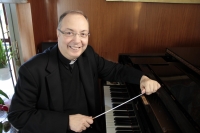
Marco Frisina (born 16 December 1954, in Rome), is an Italian Roman Catholic priest and composer. He is director of the Pastoral Worship Center at the Vatican.
Frank Sinatra

Francis Albert "Frank" Sinatra (December 12, 1915 â May 14, 1998) was an American singer and actor.
Beginning his musical career in the swing era with Harry James and Tommy Dorsey, Sinatra became a solo artist with great success in the early to mid-1940s, being the idol of the "bobby soxers". His professional career had stalled by the 1950s, but it was reborn in 1954 after he won the Academy Award for Best Supporting Actor.
He signed with Capitol Records and released several critically lauded albums (such as In the Wee Small Hours, Songs for Swingin' Lovers, Come Fly with Me, Only the Lonely and Nice 'n' Easy). Sinatra left Capitol to found his own record label, Reprise Records (finding success with albums such as Ring-A-Ding-Ding, Sinatra at the Sands and Francis Albert Sinatra & Antonio Carlos Jobim), toured internationally, and fraternized with the Rat Pack and President John F. Kennedy in the early 1960s. Sinatra turned 50 in 1965, recorded the retrospective September of My Years, starred in the Emmy-winning television special Frank Sinatra: A Man and His Music, and scored hits with "Strangers in the Night" and "My Way".
Sinatra attempted to weather the changing tastes in popular music, but with dwindling album sales and after appearing in several poorly received films, he retired in 1971. Coming out of retirement in 1973, he recorded several albums, scoring a hit with "(Theme From) New York, New York" in 1980, and toured both within the United States and internationally until a few years before his death in 1998.
Sinatra also forged a career as a dramatic actor, winning the Academy Award for Best Supporting Actor for his performance in From Here to Eternity, and he was nominated for the Academy Award for Best Actor for The Man with the Golden Arm. His also starred in such musicals as High Society, Pal Joey, Guys and Dolls and On the Town. Sinatra was honored with the Kennedy Center Honors in 1983 and awarded the Presidential Medal of Freedom by Ronald Reagan in 1985 and the Congressional Gold Medal in 1997. Sinatra was also the recipient of eleven Grammy Awards, including the Grammy Trustees Award, Grammy Legend Award and the Grammy Lifetime Achievement Award.
Beginning his musical career in the swing era with Harry James and Tommy Dorsey, Sinatra became a solo artist with great success in the early to mid-1940s, being the idol of the "bobby soxers". His professional career had stalled by the 1950s, but it was reborn in 1954 after he won the Academy Award for Best Supporting Actor.
He signed with Capitol Records and released several critically lauded albums (such as In the Wee Small Hours, Songs for Swingin' Lovers, Come Fly with Me, Only the Lonely and Nice 'n' Easy). Sinatra left Capitol to found his own record label, Reprise Records (finding success with albums such as Ring-A-Ding-Ding, Sinatra at the Sands and Francis Albert Sinatra & Antonio Carlos Jobim), toured internationally, and fraternized with the Rat Pack and President John F. Kennedy in the early 1960s. Sinatra turned 50 in 1965, recorded the retrospective September of My Years, starred in the Emmy-winning television special Frank Sinatra: A Man and His Music, and scored hits with "Strangers in the Night" and "My Way".
Sinatra attempted to weather the changing tastes in popular music, but with dwindling album sales and after appearing in several poorly received films, he retired in 1971. Coming out of retirement in 1973, he recorded several albums, scoring a hit with "(Theme From) New York, New York" in 1980, and toured both within the United States and internationally until a few years before his death in 1998.
Sinatra also forged a career as a dramatic actor, winning the Academy Award for Best Supporting Actor for his performance in From Here to Eternity, and he was nominated for the Academy Award for Best Actor for The Man with the Golden Arm. His also starred in such musicals as High Society, Pal Joey, Guys and Dolls and On the Town. Sinatra was honored with the Kennedy Center Honors in 1983 and awarded the Presidential Medal of Freedom by Ronald Reagan in 1985 and the Congressional Gold Medal in 1997. Sinatra was also the recipient of eleven Grammy Awards, including the Grammy Trustees Award, Grammy Legend Award and the Grammy Lifetime Achievement Award.
Benoît-Constat Fauconier
Benoît-Constat Fauconier Musical artist Date of birth: 1816
Luigi Talarico
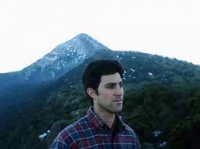
He studied Solfège and Flute at the Montreuil Conservatory. I took my first steps inthe composition here ten years and I dare to think that my works of the last times manage to be sufficiently complete to be edited and performed. I do not have
no interest or search for a possible fame, only the firm conviction that a work brought forth must vibrate and make vibrate both those who perform it and their listeners. If not, she is dead letter. If you like any of them, interpret it as you see fit and let me know. go of your impressions.
no interest or search for a possible fame, only the firm conviction that a work brought forth must vibrate and make vibrate both those who perform it and their listeners. If not, she is dead letter. If you like any of them, interpret it as you see fit and let me know. go of your impressions.
Andy de Jarles
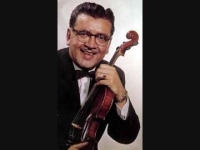
Andy de Jarlis was a Canadian Métis fiddler from Woodridge, Manitoba. He was credited with more than 200 musical compositions. He played on Winnipeg radio accompanied by the musical group the Red River Mates.
Stone Temple Pilots
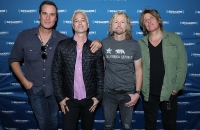
Stone Temple Pilots (also known by the initials STP) is an American rock band from San Diego, California, that originally consisted of Scott Weiland (lead vocals), brothers Dean DeLeo (guitar) and Robert DeLeo (bass, backing vocals), and Eric Kretz (drums). The band's line-up remained unchanged from its formation in 1989 until the firing of Weiland in February 2013. Linkin Park vocalist Chester Bennington joined the band in May 2013 but left amicably in November 2015. In 2016, the band launched an online audition for a new lead vocalist and announced Jeff Gutt as the new lead singer of the band on November 14, 2017.
Franz Liszt

Franz Liszt (Hungarian: Ferencz Liszt, in modern usage Ferenc Liszt, from 1859 to 1865 officially Franz Ritter von Liszt) (October 22, 1811 – July 31, 1886) was a Hungarian composer, virtuoso pianist and teacher. He was also the father-in-law of Richard Wagner. In 1865 he became abbot in the Roman Catholic Church.
Liszt became renowned throughout Europe during the 19th century for his great skill as a performer. He was said by his contemporaries to have been the most technically advanced pianist of his age and perhaps the greatest pianist of all time. He was also an important and influential composer, a notable piano teacher, a conductor who contributed significantly to the modern development of the art, and a benefactor to other composers and performers, notably Richard Wagner, Hector Berlioz, Camille Saint-Saëns, Edvard Grieg and Alexander Borodin.
As a composer, Liszt was one of the most prominent representatives of the "Neudeutsche Schule" ("New German School"). He left behind a huge and diverse body of work, in which he influenced his forward-looking contemporaries and anticipated some 20th-century ideas and trends. Some of his most notable contributions were the invention of the symphonic poem, developing the concept of thematic transformation as part of his experiments in musical form and making radical departures in harmony.
Liszt became renowned throughout Europe during the 19th century for his great skill as a performer. He was said by his contemporaries to have been the most technically advanced pianist of his age and perhaps the greatest pianist of all time. He was also an important and influential composer, a notable piano teacher, a conductor who contributed significantly to the modern development of the art, and a benefactor to other composers and performers, notably Richard Wagner, Hector Berlioz, Camille Saint-Saëns, Edvard Grieg and Alexander Borodin.
As a composer, Liszt was one of the most prominent representatives of the "Neudeutsche Schule" ("New German School"). He left behind a huge and diverse body of work, in which he influenced his forward-looking contemporaries and anticipated some 20th-century ideas and trends. Some of his most notable contributions were the invention of the symphonic poem, developing the concept of thematic transformation as part of his experiments in musical form and making radical departures in harmony.
Paul Fleury
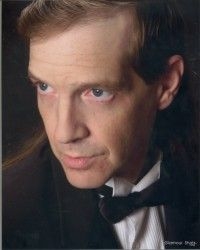
Mr. Fleury started playing cello at 6 years of age, Principal cellist of the Florida Symphony Youth Orchestra
1979-1987, Principal Cellist All State 1983-1987 consecutively. He has attended Tanglewood Institute,
Eastern Music Center, South Eastern Music Center; finally continuing education at UCF, and Converse
College. Mr. Fleury has extensive experience teaching private students and groups, conducting, competition
preparation, and general instrumental teaching. He teaches privately in Gainesville with Gainesville Suzuki
Players and in the Orlando/Winter Park area; and is associated with Maitland Suzuki School. He also acts as
assistant conductor for both the Hausmusik Orchestra and the Young Artist Orchestra in Gainesville. For the
last three consecutive years
1979-1987, Principal Cellist All State 1983-1987 consecutively. He has attended Tanglewood Institute,
Eastern Music Center, South Eastern Music Center; finally continuing education at UCF, and Converse
College. Mr. Fleury has extensive experience teaching private students and groups, conducting, competition
preparation, and general instrumental teaching. He teaches privately in Gainesville with Gainesville Suzuki
Players and in the Orlando/Winter Park area; and is associated with Maitland Suzuki School. He also acts as
assistant conductor for both the Hausmusik Orchestra and the Young Artist Orchestra in Gainesville. For the
last three consecutive years
Music theory

Music theory is the study of the practices and possibilities of music. The Oxford Companion to Music describes three interrelated uses of the term "music theory"
Antonio Carlos Jobim

Antonio Carlos Brasileiro de Almeida Jobim (January 25, 1927 in Rio de Janeiro – December 8, 1994 in New York City), also known as Tom Jobim, was a Grammy Award-winning Brazilian songwriter, composer, arranger, singer, and pianist/guitarist. A primary force behind the creation of the bossa nova style, Jobim is acknowledged as one of the most influential popular composers of the 20th century. His songs have been performed by many singers and instrumentalists within Brazil and internationally.
Christian Daguet
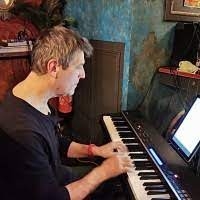
Christian Daguet - Free sheet music to download in PDF, ...https://www.free-scores.com › Artists › Composers
I am a self-taught amateur musician. My favourite musicians are : Charlie Parker, Wes Montgomery, Chet Baker, John Coltrane, Thelonious Monk, Debussy, Rave…
I am a self-taught amateur musician. My favourite musicians are : Charlie Parker, Wes Montgomery, Chet Baker, John Coltrane, Thelonious Monk, Debussy, Rave…
The Isley Brothers

The Isley Brothers (/ˈaɪzliː/) are an American musical group originally from Cincinnati, Ohio, that started as a vocal trio consisting of brothers O'Kelly Isley Jr., Rudolph Isley and Ronald Isley in the 1950s. With a career spanning over seven decades, the group has been cited as having enjoyed one of the "longest, most influential, and most diverse careers in the pantheon of popular music".Together with a fourth brother, Vernon, the group performed gospel music until Vernon's death a few years after its formation. After moving to the New York City area in the late 1950s, the group had their first successes during these early years, first coming to prominence in 1959 with their fourth single, "Shout", written by the three brothers.
Apocalyptica

Apocalyptica is a Finnish cello metal band, composed of classically trained cellists and, since 2005, a drummer. Three of the cellists are graduates of the Sibelius Academy in Helsinki, Finland. Their music features elements from classical music, neo-classical metal, thrash metal, and symphonic metal.
K-ON!!
Johann Sebastian Bach (31 March 1685 â 28 July 1750) was a German composer and organist whose sacred and secular works for choir, orchestra, and solo instruments drew together the strands of the Baroque period and brought it to its ultimate maturity. Although he introduced no new forms, he enriched the prevailing German style with a robust contrapuntal technique, an unrivalled control of harmonic and motivic organisation in composition for diverse musical forces, and the adaptation of rhythms and textures from abroad, particularly Italy and France.
Revered for their intellectual depth and technical and artistic beauty, Bach's works include the Brandenburg concertos; the Goldberg Variations; the English Suites, French Suites, Partitas, and Well-Tempered Clavier; the Mass in B Minor; the St. Matthew Passion; the St. John Passion; The Musical Offering; The Art of Fugue; the Sonatas and Partitas for violin solo; the Cello Suites; more than 200 surviving cantatas; and a similar number of organ works, including the celebrated Toccata and Fugue in D Minor.
While Bach's fame as an organist was great during his lifetime, he was not particularly well-known as a composer. His adherence to Baroque forms and contrapuntal style was considered "old-fashioned" by his contemporaries, especially late in his career when the musical fashion tended towards Rococo and later Classical styles. A revival of interest and performances of his music began early in the 19th century, and he is now widely considered to be one of the greatest composers in the Western tradition.
Revered for their intellectual depth and technical and artistic beauty, Bach's works include the Brandenburg concertos; the Goldberg Variations; the English Suites, French Suites, Partitas, and Well-Tempered Clavier; the Mass in B Minor; the St. Matthew Passion; the St. John Passion; The Musical Offering; The Art of Fugue; the Sonatas and Partitas for violin solo; the Cello Suites; more than 200 surviving cantatas; and a similar number of organ works, including the celebrated Toccata and Fugue in D Minor.
While Bach's fame as an organist was great during his lifetime, he was not particularly well-known as a composer. His adherence to Baroque forms and contrapuntal style was considered "old-fashioned" by his contemporaries, especially late in his career when the musical fashion tended towards Rococo and later Classical styles. A revival of interest and performances of his music began early in the 19th century, and he is now widely considered to be one of the greatest composers in the Western tradition.
Lucio Dalla

Lucio Dalla OMRI was an Italian singer-songwriter, musician and actor. He also played clarinet and keyboards. Dalla was the composer of "Caruso", a song dedicated to Italian opera tenor Enrico Caruso, and "L'anno che verrà".
David Shaffer
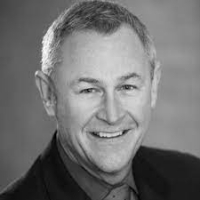
David Shaffer (b. 10 September 1953, Columbus, Ohio) is an American composer. Mr. Shaffer attended Grove City High School, Grove City, Ohio. He holds a bachelor's degree from The Ohio State University and a Master of Music degree from Miami University (Ohio).
pat metheny

Patrick Bruce "Pat" Metheny (/məˈθiːni/ mə-thee-nee; born August 12, 1954) is an American jazz guitarist and composer.
He is the leader of the Pat Metheny Group and is also involved in duets, solo works and other side projects. His style incorporates elements of progressive and contemporary jazz, post-bop, latin jazz and jazz fusion. Pat Metheny has three gold albums and 20 Grammy Awards. He is the brother of jazz flugelhornist and journalist Mike Metheny.
He is the leader of the Pat Metheny Group and is also involved in duets, solo works and other side projects. His style incorporates elements of progressive and contemporary jazz, post-bop, latin jazz and jazz fusion. Pat Metheny has three gold albums and 20 Grammy Awards. He is the brother of jazz flugelhornist and journalist Mike Metheny.
Stella Quintet

Stella Quintet Musical group stella quintet (ステラ・クインテット), also known as stella quintet+, is a fictional J-pop / classical five piece band featured in the anime Kin'iro no Corda ~Primo Passo~.
The Secret Garden

The Secret Garden is a musical based on the 1909 novel of the same name by Frances Hodgson Burnett. The musical's book and lyrics are by Marsha Norman, with music by Lucy Simon. It premiered on Broadway at the St. James Theatre on 25 April 1991 and closed on 3 January 1993 after 709 performances.
The musical, set in 1906, tells of a young English girl, Mary, who is forced to move to England from colonial India when her parents die in a cholera outbreak. There she lives with her emotionally stunted Uncle Archibald and her invalid cousin. Discovering a hidden and neglected garden, and bravely overcoming dark forces, she and a young gardener bring it back to life at the same time as she brings new life to her cousin and uncle.
The Secret Garden garnered the 1991 Tony Awards for Best Book of a Musical, Best Featured Actress in a Musical (Daisy Eagan), and Best Scenic Design (Heidi Landesman). The set resembled an enormous Victorian toy theatre with pop-out figures, large paper dolls, and Joseph Cornell-like collage elements.
The musical, set in 1906, tells of a young English girl, Mary, who is forced to move to England from colonial India when her parents die in a cholera outbreak. There she lives with her emotionally stunted Uncle Archibald and her invalid cousin. Discovering a hidden and neglected garden, and bravely overcoming dark forces, she and a young gardener bring it back to life at the same time as she brings new life to her cousin and uncle.
The Secret Garden garnered the 1991 Tony Awards for Best Book of a Musical, Best Featured Actress in a Musical (Daisy Eagan), and Best Scenic Design (Heidi Landesman). The set resembled an enormous Victorian toy theatre with pop-out figures, large paper dolls, and Joseph Cornell-like collage elements.
Daniel Chisham
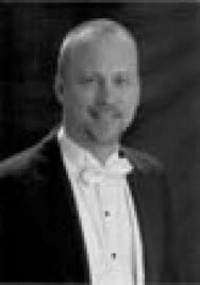
Daniel Chisham is currently teaching High School Band in the Kansas City area and resides in Lawrence, Kansas. He holds a Bachelor of Music degree from Wic ...
Joni Mitchell

Joni Mitchell was born on November 7, 1943, in Fort Macleod, Canada. In 1968, she recorded her first, self-titled album. Other highly successful albums followed. Mitchell won her first Grammy Award (best folk performance) for her 1969 album, Clouds. She has won seven more Grammy Awards since then, in several different categories, including traditional pop, pop music and lifetime achievement.
Osvaldo Pugliese
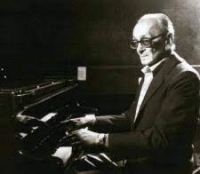
Osvaldo Pedro Pugliese was an Argentine tango musician. He developed dramatic arrangements that retained strong elements of the walking beat of salon tango but also heralded the development of concert-style tango music. Some of his music, mostly since the 1950s, is used for theatrical dance performances.
Pablo Magaña

Pablo Magana Musician Albums: Bad Day Songs Thrash Name Bad Day 2018 Kill The Bastards Bad Day 2018 Perro Gacho Bad Day 2018 C44U Bad Day 2018.
Oskar Wermann
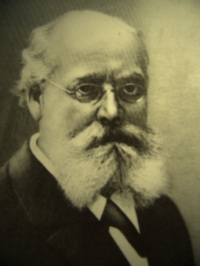
Friedrich Oskar Wermann (* 30. April 1840 in Neichen; † 22. November 1906 in Dresden) war ein deutscher Komponist und von 1876 bis 1906 Kreuzkantor in Dresden.Wermann wurde am 30. April 1840 in Neichen bei Trebsen als neuntes Kind der Eheleute Johann Wilhelm Wermann, Dorfschullehrer und Kantor, und Johanna Rosina Wermann geboren. Nach seiner Ausbildung am Lehrerseminar in Grimma arbeitete er erst als Lehrer in kleineren Ortschaften nahe Leipzig sowie in Dresden. Währenddessen studierte er Musik in Dresden bei Karl Krägen, Gustav Adolf Merkel, Ernst Julius Otto und Friedrich Wieck sowie von 1864 bis 1866 am Leipziger Konservatorium Musik bei Moritz Hauptmann, Ignaz Moscheles, Carl Reinecke und Ernst Friedrich Richter. Anschließend arbeitete er zwei Jahre lang als Musiklehrer und Organist in Wesserling. Im Jahr 1868 wurde er Oberlehrer für Musik am königlichen Lehrerseminar Dresden-Friedrichstadt. Zudem war er Organist an der dortigen reformierten Kirche.
Nobuo Uematsu

Nobuo Uematsu (植松伸夫 Uematsu Nobuo?, born March 21, 1959) is a Japanese video game composer and musician, best known for scoring the majority of titles in the Final Fantasy series. He is regarded as one of the most famous and respected composers in the video game community. Uematsu is a self-taught musician; he began to play the piano at the age of eleven or twelve, with Elton John as his biggest influence.
Uematsu joined Square (later Square Enix) in 1985, where he met Final Fantasy creator Hironobu Sakaguchi. They have worked together on numerous titles, most notably the games in the Final Fantasy series. After nearly 20 years in the company, he left Square Enix in 2004 and founded his own company called Smile Please, as well as the music production company Dog Ear Records. He has since composed music as a freelancer for video games primarily developed by Square Enix and Sakaguchi's development studio Mistwalker.
A handful of soundtracks and arranged albums of Uematsu's game scores have been released. Pieces from his video game works have been performed in concerts worldwide, and numerous Final Fantasy concerts have also been held. He has worked with Grammy Award-winning conductor Arnie Roth on several of these concerts. In 2002, he formed a rock band with colleagues Kenichiro Fukui and Tsuyoshi Sekito called The Black Mages, in which Uematsu plays the keyboard. The band plays arranged rock versions of Uematsu's Final Fantasy compositions.
Uematsu joined Square (later Square Enix) in 1985, where he met Final Fantasy creator Hironobu Sakaguchi. They have worked together on numerous titles, most notably the games in the Final Fantasy series. After nearly 20 years in the company, he left Square Enix in 2004 and founded his own company called Smile Please, as well as the music production company Dog Ear Records. He has since composed music as a freelancer for video games primarily developed by Square Enix and Sakaguchi's development studio Mistwalker.
A handful of soundtracks and arranged albums of Uematsu's game scores have been released. Pieces from his video game works have been performed in concerts worldwide, and numerous Final Fantasy concerts have also been held. He has worked with Grammy Award-winning conductor Arnie Roth on several of these concerts. In 2002, he formed a rock band with colleagues Kenichiro Fukui and Tsuyoshi Sekito called The Black Mages, in which Uematsu plays the keyboard. The band plays arranged rock versions of Uematsu's Final Fantasy compositions.
bijan mortazavi

Bijan Mortazavi (Persian: بیژن مرتضوی, born November 16, 1957) is an Iranian virtuoso violinist, musician, composer, songwriter, arranger and singer.Born in the city of Sari, Iran. Mortazavi studied music in Tehran. He was trained in improvisation, orchestration, arrangement, quarter tone technique, and dastgah by various well-known violinists in Iran.
Henry Russell
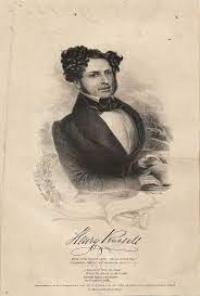
Henry Russell (24 December 1812 or 1813 – 8 December 1900) was an English pianist, baritone singer and composer, born into a distinguished Jewish family.Russell's career began in 1836, when at the age of 22 he traveled to the US and, in three seasons, earned no less a sum than £10,000. He subsequently lost this by investing in the United States Bank, which collapsed.
Richard Meyer
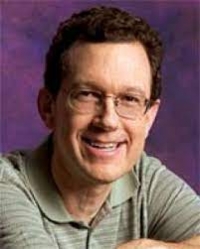
Meyer is a nationally-recognized, best-selling composer with over 190 compositions and arrangements in print, and for 16 years served as string editor for Alfred Publishing Company. He is the co-author of several string method books, including the popular String Explorer Series and Sight-read It for Strings.
 Sheet Music Network is a site for those who wants to access popular sheet music easily,
letting them download the sheet music for free for trial purposes.
It's completely free to download and try the listed sheet music, but you have to delete the files after 24 hours of trial.
Don't forget, if you like the piece of music you have just learned playing,
treat the artist with respect, and go buy the original sheet music.
Sheet Music Network is a site for those who wants to access popular sheet music easily,
letting them download the sheet music for free for trial purposes.
It's completely free to download and try the listed sheet music, but you have to delete the files after 24 hours of trial.
Don't forget, if you like the piece of music you have just learned playing,
treat the artist with respect, and go buy the original sheet music.
